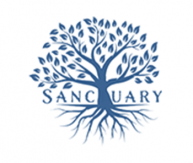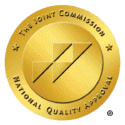
Understanding Holistic Addiction Treatment
Many treatment centers incorporate holistic practices into their programming, but there is considerable misunderstanding among the general public about what this term means. What is holistic addiction treatment, and do its benefits outweigh its potential drawbacks?
What Is Holistic Addiction Treatment?
Holistic addiction treatment is an integrative approach that is designed to help patients heal in mind, body, and spirit.
Holistic programming doesn’t focus solely on the symptoms that prompted a patient to seek treatment. Instead, it treats the whole person. This approach often complements standard medical and therapeutic care. It also includes alternative, experiential services—many rooted in traditional Eastern practices.
Types Of Holistic Addiction Therapies
The term “holistic addiction treatment” describes an overall approach, not a specific type of treatment or set of activities. However, centers that embrace a holistic approach typically offer services such as:
- Mindfulness
- Meditation
- Yoga
- Tai chi
- Reiki
- Acupuncture
- Breathwork
- Nutrition education
- Art therapy
- Dance therapy
- Music therapy
- Recreational therapy
- Spiritual practices
In addition to promoting recovery from addiction, a holistic approach can also introduce patients to activities that they can continue to practice after they have transitioned out of treatment.
Is Holistic Addiction Treatment Effective for Substance Abuse Treatment?
No single technique or approach works for everyone who has developed a substance use disorder (which is the clinical term for addiction).
The effectiveness of any type of treatment can be influenced by a range of factors, including the patient’s age and gender, their personal history, the severity of their symptoms, if they have previously been in treatment, and if they have any co-occurring medical or mental health concerns.
With these caveats in mind, holistic addiction treatment has proved to be effective at helping people end their drug use and begin to build a healthier life in recovery.
In addition to anecdotal reports, several research studies have shown the effectiveness of holistic treatment. This approach may improve outcomes for people addicted to alcohol and other drugs.
- An April 2020 article about research on holistic treatment from the University of Illinois reported that, “interventions that take a multidimensional approach – tackling the biological, social, environmental and mental health obstacles to overcome while also addressing a person’s substance use – work best for those hoping to stop using drugs.”
- A February 2022 study in the journal JAMA Internal medicine found that participants in an eight-week mindfulness-based program experienced a greater decrease in opioid misuse and pain severity than did participants who took part in eight weeks of traditional group therapy.
- A March 2024 study in the Journal of Holistic Nursing concluded that “A holistic rehabilitation program improves the quality of life of drug abusers.”
Holistic Addiction Treatment Options
Regardless of whether a center offers standard or holistic services, personalization is one of the most important characteristics of quality addiction treatment.
Each patient who enters rehab brings a unique set of needs, expectations, and experiences with them. To prepare these individuals for successful recovery, a provider must be able to customized their services based on what’s best for each person.
For centers that follow a holistic approach, treatment options may include:
- Detoxification (detox) for patients who need additional help to get through withdrawal
- Multiple levels of care, including both inpatient and outpatient programs
- Varying lengths of stay based on each patient’s progress and continued need
- A dynamic combination of traditional and alternative therapies and support services
- Discharge planning services and aftercare support to help patients build on the progress they make while they are in treatment.
Benefits of Holistic Addiction Treatment
The specific benefits that a person receives from their experience in a holistic addiction treatment program will, of course, vary according to their unique history, needs, and goals. In general, though, the advantages of a holistic approach is that it can help patients to:
- Understand the physical, psychological, and social components of addiction and recovery
- Adopt beneficial lifestyle habits such as following a nutritious diet plan and exercising regularly, which can be vital for maintaining health, managing symptoms, and remaining in recovery
- Develop healthy techniques for managing stress and dealing with setbacks without resorting to substance use or engaging in other maladaptive behaviors
- Discover and hone their innate skills and talents, which can boost their self-confidence and enhance their self-esteem
- Find positive and productive ways to fill the time that they previous devoted to using alcohol or other drugs
Disadvantages of the Holistic Treatment Program
As noted earlier, no type of treatment is ideal for everyone. And no type of treatment comes without drawbacks.
Potential disadvantages of holistic treatment include:
- Centers that overemphasize on alternative therapies and lifestyle changes may not adequately address mental health concerns that require evidence-based interventions such as cognitive behavioral therapy or eye movement desensitization and reprocessing (EMDR) therapy.
- Hesitance among patients to participate in unfamiliar activities such as acupuncture or reiki can prevent them from gaining the full benefit of their time in treatment.
- Providers of many holistic services are often not required to meet the strict certification and licensure requirements that govern psychiatrists, therapist, and other clinicians.
- Many aspects of holistic treatment have not been researched as rigorously as standard elements of care such as prescription medications and psychotherapies.
- Insurance may not cover some services, which can increase out-of-pocket costs for patients and their families.
What a Holistic Recovery for Addiction Should Look Like
While holistic addiction recovery can look different from one person to the next, common features should include:
- A welcoming environment where patients feel valued, respected, and supported
- Experienced, compassionate professionals who encourage patients to play an active role in all aspects of their care
- Thorough intake assessments to identify the full scope of each patient’s needs
- Personalized treatment plans that reflect the information gathered during the patients’ intake assessments
- Ongoing evaluation of patients’ progress and the flexibility to adapt their treatment plans as needed
- Dual diagnosis programming for patients who have anxiety, depression, and other co-occurring mental health conditions
- Activities to address physical health, psychological strength, and spiritual well-being
- Opportunities for participants to share support with others who have experienced similar challenges and who are working toward a common goal
- An unwavering commitment to the safety of all patients, staff, and visitors
Visit Our Sanctuary Treatment Center for Holistic Recovery
Sanctuary Treatment Center is a trusted provider of holistic recovery services. We help adults whose lives have been affected by addiction and co-occurring mental health concerns.
Our detox and rehab facility in Los Angeles, CA, offers an intimate and comfortable setting. Patients collaborate closely with a team of experienced and compassionate professionals. Together, we can help you end your substance use and find your path toward a healthier future in recovery. Moreover, to learn more about how we can help you or a loved one, or to schedule a free consultation, please visit our Contact page or call us today.
Published: 5/19/2025


